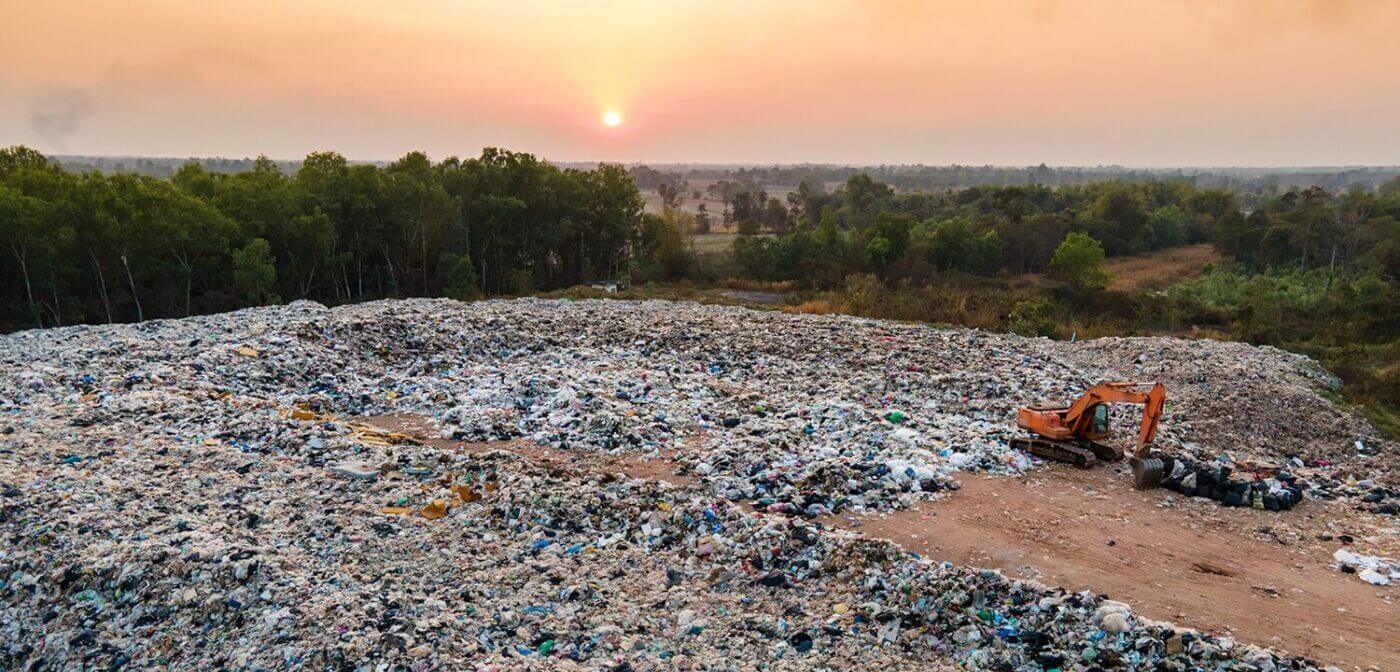
Four countries have effectively reduced their waste methane emissions through policy action. Here’s what they have in common.
Methane is a potent greenhouse gas responsible for nearly half a degree Celsius of the warming we’ve seen since 1900. The waste sector, encompassing both solid waste and wastewater, is responsible for roughly 20% of global methane emissions. As countries develop national climate strategies and strive to meet international targets such as the Global Methane Pledge, methane mitigation from the waste sector must become a priority. A key challenge, however, is that governments stepping up to make this work a priority may need to shift their perspective on waste management entirely, making policy guidance an invaluable tool.
Clean Air Task Force’s new report, The Waste Methane Toolbox: Policy Solutions for a Low Methane Future, was created to meet this need. Based on research and evaluation of national-level approaches from around the world, it presents a menu of options and case studies for governments to consider for solid waste methane mitigation. This blog highlights common policy features in countries where solid waste methane emissions have declined.
Four out of seven countries examined reported measurable emissions reductions
A key feature of CATF’s Waste Methane Toolbox are case studies of the policy landscapes of Colombia, Germany, India, Italy, Peru, the Republic of Korea, and the United States. This section focuses on these countries’ strategies to reduce methane emissions from the solid waste sector, with an emphasis on their national regulatory frameworks, the adoption of key methane mitigation technologies, and reported emissions trends over time.
Among the seven countries profiled, four—Germany, Italy, Korea, and the United States—have reported measurable emissions reductions.
It’s important to note that methane emissions data from landfills in the United States are currently under review by researchers, who have identified inconsistencies between reported figures and satellite observations, so it will be excluded from this discussion. However, this does highlight the importance of continuing to strengthen emissions measurement and verification systems.
Countries reducing emissions share five common policy features
Closer analysis reveals a pattern among countries reporting progress. Germany, Italy, and Korea employ a core set of policies that reinforce one another across the waste management chain, from generation to disposal.
- One key policy lever is mandatory source separation of organic waste, such as food and yard waste, which prevents it from ending up in landfills where it would otherwise decompose anaerobically and emit methane. Korea implemented volume-based waste fees in 1995, followed by a weight-based fee specifically for food waste in 2014. Italy’s waste charge (TARI) is based on household size, and municipalities can also implement Pay-As-You-Throw systems to encourage waste reduction. Germany follows the principle of cost coverage, with fees set by local governments.
- Policies that limit landfilling are also critical. Germany and Italy are both working toward the EU Landfill Directive’s goal of landfilling no more than 10% of municipal waste by 2035. Germany prohibits landfilling of waste with total organic carbon content above 3%, while Korea banned the landfilling of food waste entirely in 2005.
- Another major driver of progress is infrastructure for landfill gas capture. All three countries require or strongly incentivize the installation of gas capture systems at landfill sites to prevent methane from escaping into the atmosphere. They also offer subsidies and incentives to support these technologies and provide technical assistance to municipalities to build capacity.
- Public engagement is also part of the strategy. Germany, Italy, and Korea all promote education and behavior change campaigns to increase recycling, improve household waste sorting, and raise awareness about the environmental impacts of methane emissions. School programs, public competitions, and labeling systems help reinforce these goals.
- Importantly, these countries are all signatories to the Global Methane Pledge, the Paris Agreement, and COP29’s Declaration on Reducing Methane from Organic Waste, further signaling their commitment to international climate action.
The toolbox provides strong foundation for waste methane action, but gaps remain
The toolbox is a critical step toward accelerating methane reductions, but more work is needed. Governments and researchers must continue to evaluate which policies are delivering real-world emissions cuts, and where gaps remain. Stronger methane monitoring and reporting—including satellite-based measurements and improved emissions inventories—will be essential to track progress.
CATF’s report offers a starting point for collaboration, learning, and action. By sharing best practices and aligning policy efforts with proven solutions, countries can make significant strides toward reducing one of the most dangerous and addressable climate pollutants of our time.



